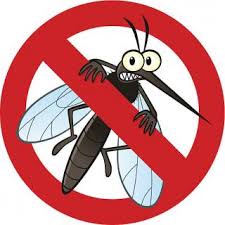
Is It Hard to Make Your Home Insect-Free?
It takes ongoing and repetitive work to keep away the flies and insects. After all, those little creatures have all the time in the world to annoy you and possibly contaminate your food and drinks. Although they have short lifetimes they still get down to business quickly and they’re all about consumption and reproduction.
This makes them a hard enemy to beat. We humans are busy with our work and other responsibilities which is why we often have very little time to deal with flies and insects. In contrast, flies are fast to reproduce and find food. It’s especially the case during hot wet summers (the flies’ comfort zone) when almost everyone is outside and the food sources are just lying around (e.g. trash, the nutrients from our sweat especially near our eyes and mouths).
Is it hard to make your home insect-free
The short answer is yes especially because we’re dealing with an absolute. It’s all or nothing here because just a single fly can ruin your home living (and it will be a shame to your guests). We want the number to be zero but it seems impossible to achieve because it requires ongoing work.
Little creatures are often resilient and persistent and it’s true that there’s strength in numbers. Approximately there are 30,000 species of fly in Australia and out of that only 6,400 have been described. Flies and other insects have also evolved to successfully evade physical attacks (they have more advanced eyes and far greater agility than us). When it comes to feeding, these creatures don’t need a lot because the nutrients from our sweat are already enough. Throughout history the little creatures have been always successful and the huge creatures are always to die first whenever something bad happens.
Flies are naturally abundant especially in Australian ecosystems (flies and humans have a tendency to love this moderate climate). Although flies are annoying, they still perform important ecological functions especially when it comes to recycling of nutrients and by being food to larger animals. The truth is each creature has a role in maintaining an ecosystem or making it flourish. But in modern societies and artificial environments, most other small creatures are treated as a huge nuisance. They don’t have a strong role anymore in the concrete jungles because of our modern and interdependent systems take care of all the waste, food and other essentials.
But if we’re looking at the long threads of history, nature doesn’t actually care who survives because Earth and the universe will persist no matter which creatures remain (although we humans have now the power to change the Earth in a huge way). Most creatures will still persist if there’s enough food to go around (especially if there’s enough protein source so that females can remain fertile) and the next generation can replenish the decreased numbers from the previous one.
It’s especially the case with the Australian bush fly that can increase in numbers by 10x within just a few days (50+ eggs per female with 30% survival rate). Almost everyone is wondering where all those flies come from and how suddenly they appeared all at the same time but then we realise that they lay many eggs and can reproduce within a few days.
Are we defenceless?
Good news is we can always do something but as mentioned in the beginning, it just takes ongoing and repetitive work. Immediately cleaning away the food and debris will help because you’re taking away the flies’ food source and the insects’ breeding sites. Regular cleaning and properly taking care of the trash help in keeping away the flies and other insects. Some homeowners and residents have also tried using natural deterrents (plants with odours that insects don’t want). Although it’s like having a garden of defence, results might be unsatisfactory especially because female flies have a strong urge to find a protein source. Some plants and unwanted smell won’t keep them away.
The recommended solution then is to prevent the flies from entering your home in the first place. The gaps in the doors and windows are wide enough for most insects to break into. Those gaps should be sealed and this will be very helpful not just in preventing entry of insects but also when it comes to saving on electricity because hot or cold air won’t easily escape or come in.
Another way to make your home insect-free is by installing fly screens on your doors and windows. Good thing about these fly screens is they block the insects while still allowing some natural light and fresh air. This is great for ventilation and for making your home still look and feel natural.
Making your home insect-free requires a combination of the solutions mentioned above. And as you’ve realised and with your knowledge about the flies (their persistence, resilience and the speed in which they reproduce), it’s almost impossible to keep the number to zero especially during the summer. Good thing is that with the solutions mentioned, you can still severely limit the number of insects in your home. Zero is the ideal but prepare to see an insect or two once in a while.
